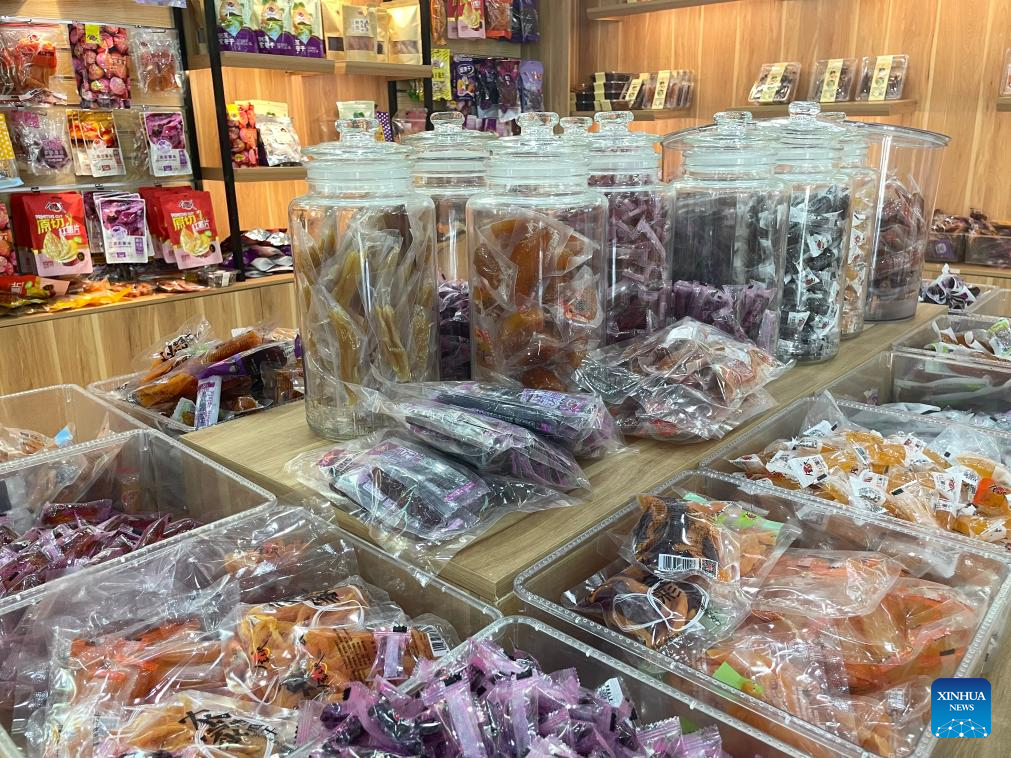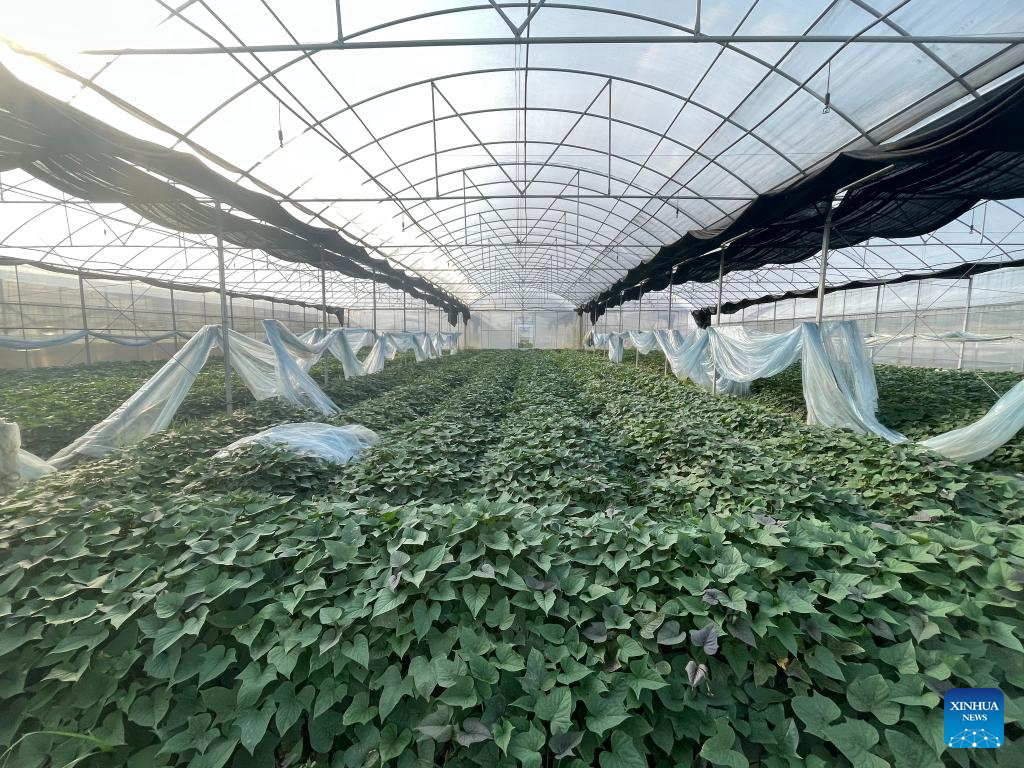
This photo taken on May 8, 2024 shows sweet potato products displayed in Liancheng County of Longyan, east China's Fujian Province. (Xinhua/Wang Yihan)
FUZHOU, May 20 (Xinhua) -- Transformed by humming production lines and machines, tonnes of fresh sweet potatoes turn into packets of crispy sweet potato chips. This bustling scene unfolds daily at a sweet potato processing facility in the east of China.
"We own three fully automated production lines, and one single production line consumes 20 tonnes of fresh sweet potatoes per day," said Huang Baochun, head of Fujian Fengfeng Food Co., Ltd, based in Liancheng County of the city of Longyan, east China's Fujian Province.
Hailed as "the capital of sweet potatoes," Liancheng's history of planting sweet potatoes spans hundreds of years, and currently this county has a sweet potato planting area spanning approximately 100,000 mu (about 6,667 hectares).
Right now, Liancheng is home to 58 sweet potato processing and sales enterprises, and sweet potato products produced in the county account for over 80 percent of China's market share. In 2023, Liancheng's output value in terms of its entire sweet potato industrial chain had reached 14.5 billion yuan (about 2.04 billion U.S. dollars).
For the residents of Liancheng, sweet potato was once a daily staple. Nestled in a southern section of the Wuyi Mountains, this county features undulating mountains, with its arable land area of some 16,953 hectares only accounting for a mere 6.57 percent of the county's total land area.
Such a limited arable land area previously led to food shortages in the county. However, sweet potatoes were introduced to China in the mid to late Ming Dynasty (1368-1644), and residents of Liancheng, which boasts selenium-rich soil, ample sunshine and abundant rainfall, started planting this crop to tackle their food challenge.
The high-yield and tasty sweet potatoes not only fed local people well at that time, and later also became a source of wealth for them.
In the 1990s, thousands of small workshops mushroomed in the county, and they engaged in baking dried sweet potatoes. To promote standardized, large-scale, and branded development of the sweet potato processing industry, the local government established a sweet potato industrial park in 2009, providing services including e-commerce, logistics and sewage disposal.
As of now, more than 160 sweet potato products have been developed in the county, stretching across ten categories including snack food, pet food, beverages and cosmetics.
"We have kept innovating to cater to the evolving tastes of consumers," said Li Yanhua, head of Liancheng Funong Food Co., Ltd, a leading enterprise settled in the industrial park, while adding that the company has developed hundreds of dried sweet potato products, including health products that are low-calorie, additive-free and sugar-free.
In 2021, a sweet potato industry research institute was established with the support of the local government. The institute focuses on seed cultivation and new variety introduction, as well as providing professional quality inspection services for local sweet potato enterprises, which further enhances the development of the sweet potato industry.
Liancheng's sweet potato industry also rides the waves of e-commerce. According to an employee at Lianxun E-commerce Co., Ltd, a local e-commerce enterprise specializing in selling agricultural products, the company has seen its annual sales of sweet potato products reaching 40 million yuan.
Meanwhile, Zhang Yuanshan, head of Liancheng's e-commerce office, has revealed that the county's sweet potato products have been sold in more than 600 cities across China, and also exported to a number of countries including Japan, the Republic of Korea and the United States. ■

This photo taken on May 8, 2024 shows a sweet potato planting area in Liancheng County of Longyan, east China's Fujian Province. (Xinhua/Wang Yihan)



